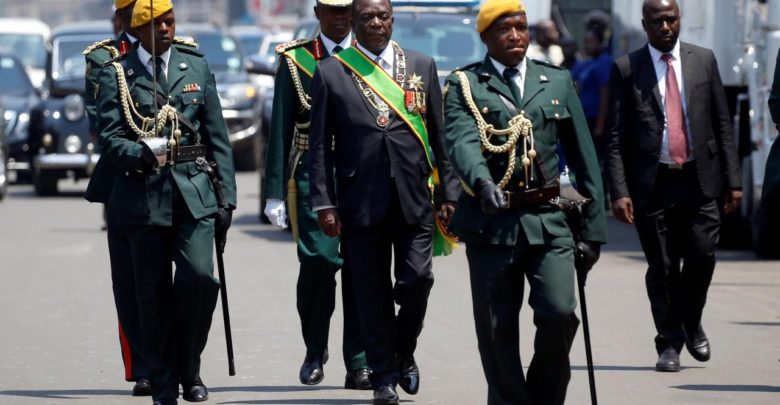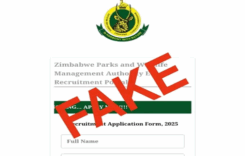President Emmerson Mnangagwa at the official opening of Parliament
CLAIM: Senior ZANU-PF official, Obert Mpofu, has claimed that President Emmerson Mnangagwa can legally extend his presidency by changing the constitutional provision limiting presidents to two five-year terms through Parliament.
VERDICT: Mpofu’s claim is erroneously based on the assumption that only Parliament can determine whether presidential term limits can be changed or not.
This is not correct.
Under the current Constitution, a sitting president cannot benefit from any changes to term limits and changing this provision requires a referendum, which takes the matter beyond Parliament.
What did Mpofu say?
Mpofu, ZANU-PF’s secretary for administration, is quoted by NewsDay telling Mnangagwa at a youth rally held in Kadoma on November 27 that:
“Mr President, you can go beyond 2028 if you so wish because the issue of law can be taken care of in Parliament.”
The newspaper reports that Mnangagwa appeared to share Mpofu’s view, telling the same rally:
“We can change the laws … there is nothing that we want that cannot be done because we command two-thirds majority in Parliament.”
What does the law say?
The constitutional changes Mnangagwa would need to extend his presidency beyond two terms require not just two-thirds of the votes in Parliament, but a popular majority through a referendum as well. Having been elected in 2018, and assuming he gets re-elected for a second term in 2023, Mnangagwa would be ineligible to stand in the 2028 elections. The period between November 2017, when he was installed as former President Robert Mugabe’s replacement, and August 2018, when he was sworn in, does not count as a term as it is less than the minimum three years which count as a full term.
Section 91 of Zimbabwe’s new Constitution, which came into effect in 2013, limits a president’s tenure in office to two five-year terms.
Section 91(2) reads:
“A person is disqualified for election as President or Vice-President if he or she has already held office as President under this Constitution for two terms, whether continuous or not, and for the purpose of this subsection three or more years’ service is deemed to be a full term.”
At the time of drafting the new Constitution, former President Robert Mugabe had been in that position for more than 25 years and having served as prime minister for seven years before that.
Mugabe’s extended stay in power, as well as his clearly undiminished appetite to retain it, was a key consideration for the drafters. They crafted a provision that effectively barred an incumbent president from changing the Constitution to extend his or her stay in power.
“If, for whatever reason, they manage to do so (amend the Constitution), it cannot benefit the sitting president. We built it into the Constitution to work as a disincentive,” Douglas Mwonzora of the Movement for Democratic Change, who co-chaired the parliamentary committee which drove the constitutional reforms, told ZimFact.
“So, assuming they somehow manage to change the provision, it can only benefit his successor.”
This provision is carried under Section 328 (7), which reads:
“Notwithstanding any other provision of this section, an amendment to a term-limit provision, the effect of which is to extend the length of time that a person may hold or occupy any public office, does not apply in relation to any person who held or occupied that office, or an equivalent office, at any time before the amendment.”
To provide further safeguards against presidential term limit extension, the drafters of the new charter came up with a provision stipulating that Section 328 could itself only be amended through a referendum.
Conclusion:
It is incorrect to suggest, as Mpofu appears to do, that the extension of presidential term limits rests solely with Parliament. The 2013 Constitution has a provision which disqualifies a sitting president from benefiting from any changes to the stipulated terms of office.
Any changes to this clause requires popular support measured through a referendum. This takes the matter beyond Parliament.
Do you want to use our content? Click Here












